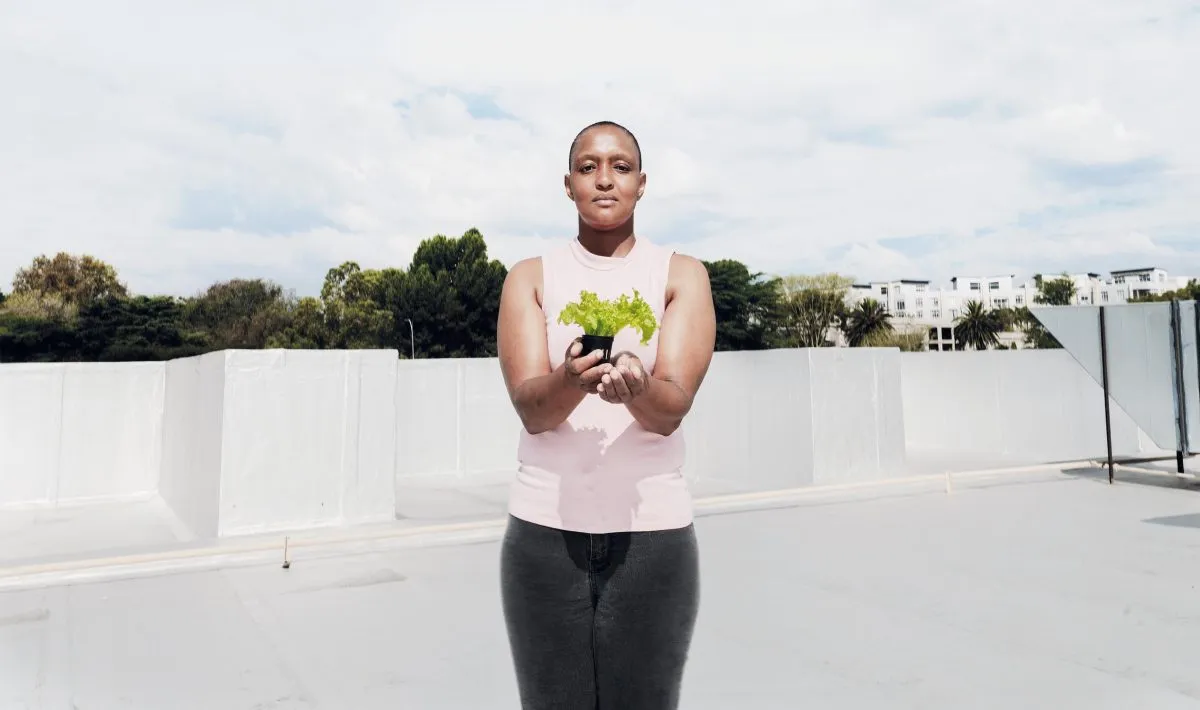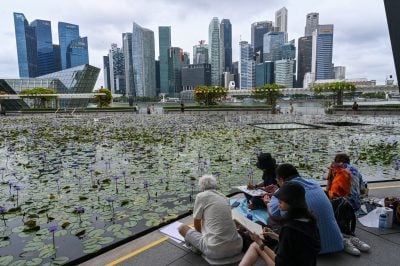This article was produced with the support of Brand South Africa
This same group has witnessed the moulding of society that has developed based on this new shared democratic vision. Over 2.5m small, medium and micro-enterprises (SMMEs) are operational and contribute 40% to the local economy, according to the OECD.
Policy initiatives such as Broad-based Black Economic Empowerment (BEE), the Youth Enterprise Development Strategy, the National Development Plan and the Youth Employment Service have provided the platform for young entrepreneurs to have an equal opportunity to do business in economic sectors that have not always been accessible to them. In June, as the country commemorates the 48th year since the student uprising of 1976, South Africa dissects the triumphs and obstacles facing young entrepreneurs and what opportunities exist as South Africa sets a path for the next 30 years.
Following the dawn of democracy in 1994, BEE was introduced, and legislated ten years later, as a tool to redress economic inequalities and set to transform the economy by making opportunities available to previously disadvantaged groups. The legacy of the late Dr Richard Maponya was that of a pioneer and entrepreneurial giant. Maponya inspired several generations of upcoming entrepreneurs, including the born-frees in democracy.
Maponya was critical of the BEE model being focused only on changing business ownership and demanding transformation in the formal economy only. Many young entrepreneurs in South Africa operate in the informal economy, which is not measured by traditional financial institutions and far from the “million dollar mile” of Johannesburg’s Sandton. The informal economy accounts for 18% of gross domestic product, and there is opportunity for expansion for young entrepreneurs who are on the economic periphery to attain economic freedom.
Young academics from the Mapungubwe Institute for Strategic Reflection suggest that real progress and upliftment of emerging entrepreneurs depends on addressing, in the next three decades, real inequality and on investment opportunities to build livelihoods where people meet, rather than in urban city centres. A social entrepreneur, Tracey Chambers, suggests that the key to eradicating intergenerational poverty is through building microbusinesses within the informal economy. Her business The Clothing Bank has had far-reaching impact on communities, through resolving social issues while equipping its partners to become independent entrepreneurs.
The life cycle of a business in South Africa is short: the first year of operation is crucial. To a certain extent this is due to policies that speak only to big business and not to nurturing smaller businesses to become employers.
South Africa’s young people show the lowest entrepreneurial propensity on the continent, at 23.3%, according to the 2016 Global Entrepreneurship Monitoring Report. Compared to our peers South Africans are least likely to be inclined to start a business and scale it up. Prospective investors rarely take notice of emerging entrepreneurs. How does the country build initiatives to close this gap and keep the entrepreneurial spirit in the hearts of our youth alive?
Ring-fenced youth funding
Access to funding remains tough for young entrepreneurs as they compete against more established outfits that may be at a different phase of development. One way of addressing low entrepreneurial propensity is expanding the funding mandate from the Department of Small Business Development – by combining the resources of their Youth Fund Challenge with that of the National Youth Development Agency and Small Enterprise Finance Agency.
A report from Duja Consulting earlier this year called on government to consider the benefits of developing a singular youth fund. Streamlining these resources into a central fund would allow young entrepreneurs to apply just once, and create a single database with business profiles from across the country.
That would make it easier to identify entrepreneurs who have not been considered, and offer better monitoring of disbursement and broader understanding of financial needs. This intervention would provide more tailored solutions to the needs of young entrepreneurs across different demographics.
Building markets for young entrepreneurs on the continent
The late Dr Richard Maponya envisioned entrepreneurship as developing local economies and building human capabilities across Africa. One way to address the issue of entrepreneurial propensity on the continent is through bilateral interventions to make neighbouring markets easier to access by way of the African Continental Free Trade Agreement. One initiatives in Southern Africa under this agreement outlines opportunities to expand youth entrepreneurship through the agriculture, financial technology, creative and IT industries.
It further ensures that young entrepreneurs have access to mentorship, funding, and skills development and are equipped with educational resources on protecting their intellectual property as they scale up to new markets.
Biennial events such as i-BootCamp not only cultivate networks among young entrepreneurs from across the continent, but also build up interventions made by partnering with universities, development finance agencies and international organisations to make collaboration in new markets possible.
Immense potential
SMMEs have been pegged with the potential of building 2m jobs in the coming years and the National Development Plan has affirmed this in stating that 90% of new jobs will come from smaller local enterprises by 2030. The government has a role to play to ensure that these new service providers are connected to Sector Education and Training Authorities and given additional support when it comes to training new employees and getting tax incentives for leadership opportunities.
Education and practical programme
In order for young people to actualise and blaze a new path as economic beings and entrepreneurs, South Africa must address the low levels of entrepreneurial activity which stands at 6% according to the Youth Enterprise Development Strategy.
South Africa needs to ensure that it builds a business environment that provides young people with transitionary platforms where they can get financial and non-financial support that will help them navigate the economic challenges. Business development agencies such as Fetola support emerging entrepreneurs with mentorship, practical programmes like accelerators, and educational resources.
The government has a role to play in rigorously monitoring the policy imperatives as well as the hubs built to reach young entrepreneurs and nurture youth entrepreneurship on an annual basis, and it must not wait for the end of the strategic tenure to evaluate progress.
As South Africa commemorates #YouthMonth, there is a need to bring the status of young entrepreneurs back into the local public discourse and recommit efforts to ensuring that young people are taken seriously on their entrepreneurial journey. South Africa has seen many young South Africans break barriers to become disruptive leaders in the creative industries, health, sport, sciences and technology sectors.
All South Africa needs to remember is that the future remains ours and our story is still unwritten.

 Sign in with Google
Sign in with Google 



